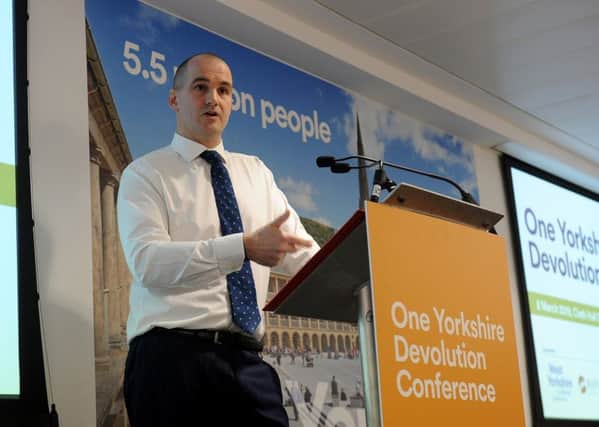Northern Powerhouse’s health inequality misery is costing UK billions - Hannah Davies


Now the Institute of Fiscal Studies has revealed that inequalities are becoming more extreme and has announced a five-year review to investigate the issue.
We in the North take the brunt of inequalities. No one would deny that inequalities exist across the UK but in the Northern Powerhouse they exist on a scale unseen in the rest of England.
Advertisement
Hide AdAdvertisement
Hide AdThe Treasury, the Department of Health and Northern Powerhouse minister Jake Berry cannot ignore this fact. When looking at how to deliver local Industrial Strategy, the Northern Powerhouse strategy refresh and the Spending Review, North/South inequalities must be taken into account.
Health is key to the dramatic and growing inequalities between North and South. We know there is a productivity gap between the North and South of England – what’s less known is that a third of that is because of health.
Our Health for Wealth report asked the question “If you invested in the poor health of the North and brought it up to the country’s average, what impact would that have on the UK economy?”
The answer was £13.2bn extra every year. Leading academics from the North’s top universities, including the University of York, found the North has a £4 productivity gap with the South of England, £1.20 of that is because of ill-health.
Advertisement
Hide AdAdvertisement
Hide AdWith a lot of ideas floating around about how to tackle the productivity crisis, these are solid figures which give politicians a clear roadmap.
The Northern Powerhouse needs to be more connected and it needs a skilled workforce but a healthier population is essential. The North’s physical and mental health are woefully behind that of the rest of the country.
This ill-health has a direct relationship to productivity and in many examples this relationship between health and productivity is unique to the North.
The UK’s productivity crisis is well documented. Nowhere is this more pronounced than the North where job growth has been less than one per cent compared to over 12 per cent in London.
Advertisement
Hide AdAdvertisement
Hide AdThe Health for Wealth report found increasing the proportion of people in good health in the North by 3.5 per cent would reduce the employment gap between the North and the rest of England by 10 per cent. These are figures the Government simply can’t afford to ignore.
Digging deeper into the reasons behind this are even more dramatic figures. If they experience a spell of ill-health, working people in the North are 39 per cent more likely to lose their job compared to their counterparts in the rest of England. If they get back in to work, their wages are 66 per cent lower than their counterparts elsewhere.
The researchers discovered increasing the NHS budget by 10 per cent in the North will decrease economic inactivity rates by three per cent. Nowhere else in the country is there this direct link between NHS spend and productivity.
But acknowledgement and good intentions by Ministers only go so far. We need to see a proportional increase in public health funding for the North. We need to improve labour market participations and job retention among people with a health condition in the Northern Powerhouse and to increase funding in the region to be spent on prevention services and health science research in the areas that need it most.
Advertisement
Hide AdAdvertisement
Hide AdOn a regional level, health and wellbeing boards, and NHS integrated care systems, should commission more health promotion, condition management and prevention services.
And there needs to be a joined-up approach with local enterprise partnerships and local authorities on scaling up public health programmes.
This is why the Northern Health Science Alliance is working together with Metro Mayors, Public Health England, Local Enterprise Partnerships and with Government to see where interventions are most effective.
But we need to see real money and real action taken now. Tackling the North-South health inequality problem is an effective, achievable intervention that can take place now and which will see very real benefits for the entirety of the country.
Hannah Davies is Head of Public Affairs at Northern Health Science Alliance.